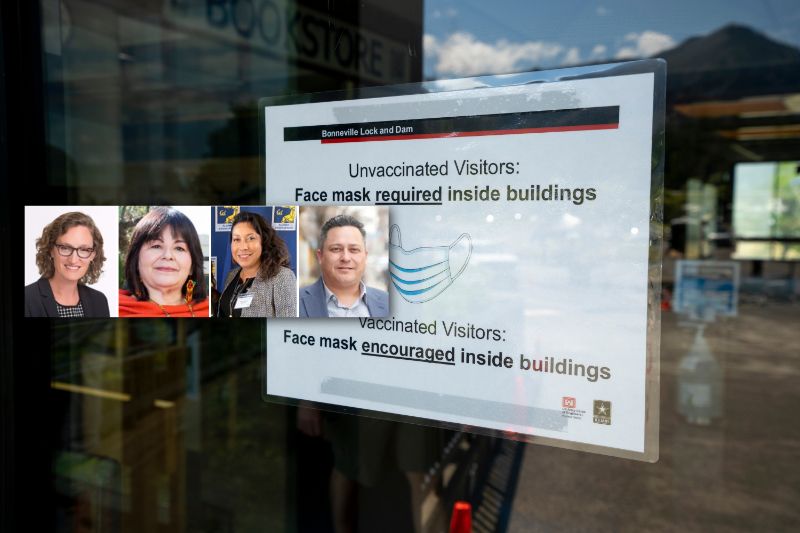Vaccinating the Unvaccinated
L-r: Kim McCoy Wade, Director, California Department of Aging; Irma R. Muñoz, Founder and Executive Director, Mujeres de la Tierra; Esperanza Vielma, Executive Director, Environmental Coalition for Water; Jorge Pingarron, Canvasser, Todos Unidos
With the Coronavirus becoming an evolutionary menace, humans are still on a crusade to end this pandemic. Even though the solution is right in front of us, ideologies, politics, social stigmas, and fear/doubt fog our judgment. Here are a group of experts finding ways to connect with the unvaccinated and persuading them to be vaccinated.
COVID-19 doesn’t discriminate – killing thousands and infecting millions regardless of socio-economic status, ethnic community, region, and/or religion. It’s common sense that every person would be chasing after vaccines, more so with the new variants decimating our progress in combatting COVID-19. The reality is that many communities are simply misinformed and can benefit from better education.
It is easy to throw the blame on the unvaccinated, however, the real culprit is misinformation and lack of proper access. Community/church leaders compare vaccines to poison, vaccination sites open on days when hourly workers aren’t available, and distrust with the government would be enough reason to be skeptical about the vaccine.
Many unvaccinated people simply “…have fear of the unknown.” According to Irma Munoz, Founder and Executive Director of Mujeres de la Tierra, approaching the unvaccinated with a more personal connection – having a more personal conversation and promoting the vaccine with the sincere intent to help – is more effective and notable. “…We try to take fear out of people’s hearts and put facts in their heads, and many times it takes a while to do that.”
Politics played a huge role in unvaccinated communities. “…People still do not believe in COVID, and they are simply anti-government.” George Pingarron, Campaign Manager for Gavin Newsom’s ‘Get Out the Vaccine Efforts’, notes the ideological differences between the unvaccinated and experts helping end the pandemic. He believes the community will listen to a “personal conversation” held in person.
In rural settings, the challenges are different. Pilar Marrero, Contributing Editor of Ethnic Media Services, questions the social media access in rural California. A valid question. Esperanza Vielma, Executive Director of the Environmental Coalition for Water, notes that social media access is very limited in rural areas. Other constraints include the scattered nature of residential areas making it harder to reach everyone door-to-door. The rural areas can be best served by old-school flyers and having conversations in a more central setting, like the local grocery store.
All experts vehemently agree that the older generation and younger generation would be the strongest delegates for the vaccines. Persuading parents to get vaccinated for their kids and having the parents’ parents lead by example seems to be the most effective method to get the whole family vaccinated.


